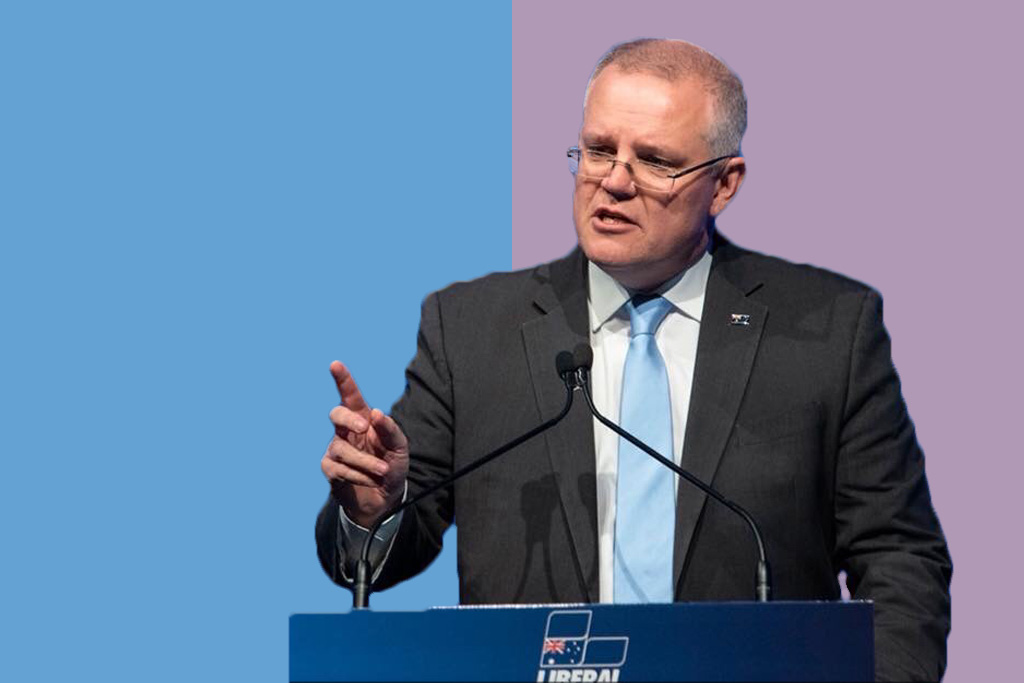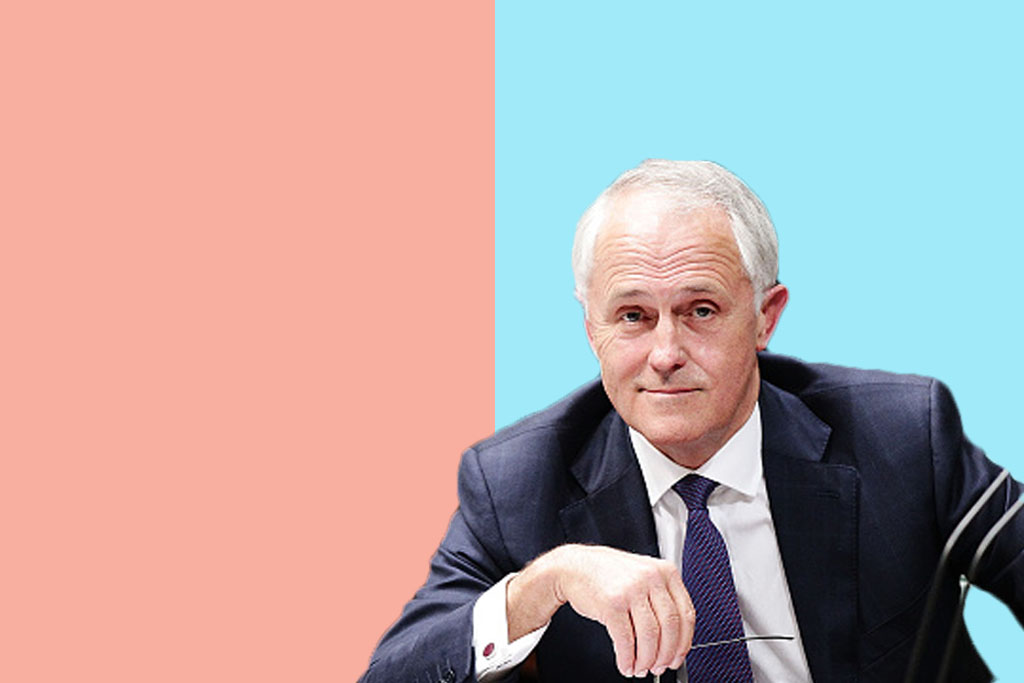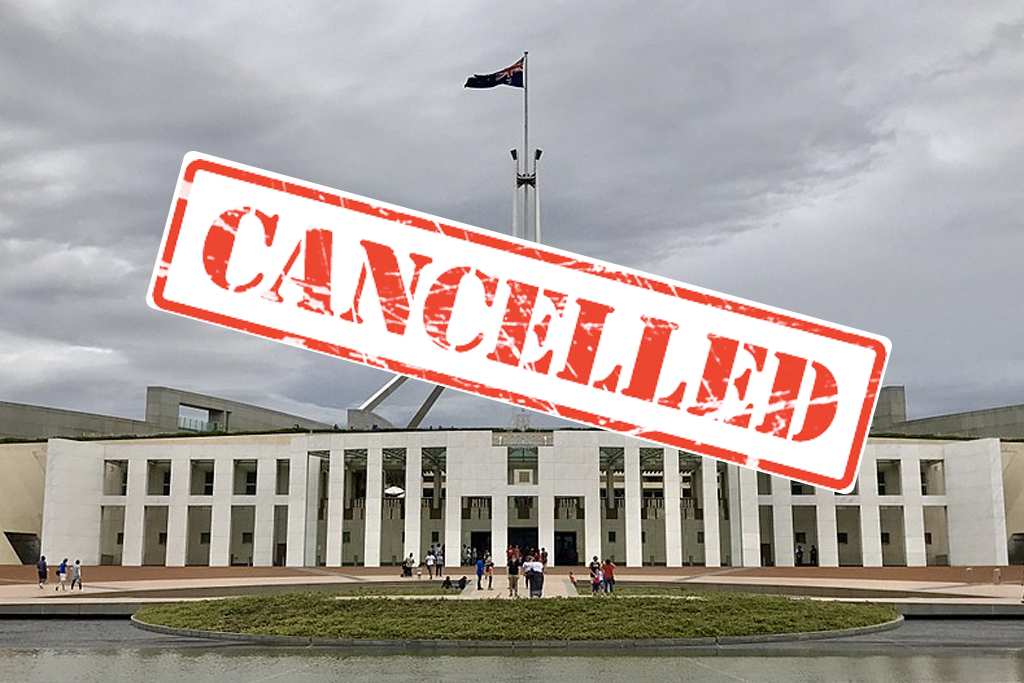Chelsea Manning Has The Advice Australia Needs Right Now
We spoke to Chelsea Manning about abolishing prisons, opening borders, and the responsibility of being a trans icon.

Last Thursday, while the Australian government was disintegrating around us, I found a quiet room and called Chelsea Manning.
It was a special day for Manning: five years since she came out as transgender from her prison cell, the day after she was handed a 35-year sentence for leaking more than 700,000 US military documents to WikiLeaks. A lot has happened in those five years, or even just in the past two. In 2017, President Obama commuted the remainder of Manning’s prison sentence and she walked free; earlier this year, she ran for Senate in her home state of Maryland, losing the Democratic primary to incumbent Ben Cardin.
All in all, it’s well past time for a break. As Manning herself put it in a tweet commemorating the anniversary, “after years of fighting, now I get to relax at home binge-watching stuff”.
Five years have passed since I came out as trans from prison 🙀 after years of fighting, now I get to relax at home binge watching stuff 😭🌈💕 thank you all for fighting alongside me pic.twitter.com/fHddCJLPMe
— Chelsea E. Manning (@xychelsea) August 22, 2018
In reality, things are a little more complex than that. “I’m actually very busy,” Manning admitted when asked what relaxing at home looked like for her these days. “Realistically, I do a lot of travel, I do a lot of activism and speaking. And then obviously the more boring logistics of doing all of these things.”
Boring logistics in this case means “basic housework and stuff, just trying to learn how to cook and watch a couple TV shows”. Ordinary, everyday stuff — except that for Manning, this past year has been the first time in her adult life that these have even been an option. She’s 30 years old, and she’s spent the bulk of the last decade either in the US army or in military prison. Her life has never been ordinary, and in many ways it never will be, because everywhere she goes she wields an enormous platform. Her tweets are received by 300,000 Twitter followers, and her words and decisions routinely make headlines.
When we spoke, Manning struck me as someone constantly considering how to wield that immense platform and influence with care. Even on the topic of TV she’s been watching lately, she was careful, hesitant to give specifics. “I don’t want to give any endorsements, you know,” she said. “I don’t want to be like an advertiser for some network TV show.” That said, she did offer that lately she’s been watching Ken Burns and Lynn Novick’s Vietnam War documentary series, which she found “gripping and intense, and very close to home for me as well, as someone who dealt with something very similar later in our history”.
It’s not just online that Manning has had to carefully navigate her influence. She makes a living these days through speaking engagements, and later this week she’ll visit Australia for the first time to speak at events in Sydney, Melbourne and Brisbane. Her visit comes at a particularly turbulent time in Australian politics — between our interview last Thursday and this article’s publication, the government has swapped one Prime Minister for another, reshuffled most of its senior ministers, and alienated a good chunk of the voting public.
There’s no way Manning could have known this in advance, and it’s unreasonable to expect her to be familiar with the messy details of Australian politics. And yet, so much of what she had to say struck me as incredibly relevant to the things happening in Australia at the moment, from our border policy and treatment of asylum seekers to last week’s series of leadership spills. In fact, Chelsea Manning may just have the advice Australia needs right now.
Take, for example, two of the issues she campaigned intensely on during her Senate run: the need to open borders, and, conversely, close prisons. Manning’s suggestions on both fronts are radical in the extreme: they go far beyond even the most left-wing suggestions present anywhere near mainstream Australian politics. But whether or not you consider these ideas reasonable, they stem from an insightful observation: that borders and prisons are flawed in a similar way, and that these flaws can’t necessarily be addressed without radically dismantling current systems.
“It’s a matter of state power, state control, but it’s also a reinforcement of incumbent groups of people,” is how Manning draws the link between prisons and borders. Prisons and borders in the US, she explained, impact certain groups of people more than others: “people of colour, immigrants, undocumented folks — any minority group, trans folk as well”.
That’s not a bug, that’s a feature — and that’s the problem. This isn’t a system that just happens to be doing bad things — no, it’s designed to be that way in the first place
“Any intersection among those different groups, they’re going to be much more affected and impacted by these systems. That’s not a bug, that’s a feature — and that’s the problem. This isn’t a system that just happens to be doing bad things — no, it’s designed to be that way in the first place.” By way of example, she pointed to the disparities in US incarceration rates based on race, and the idea that the explosion in the US prison population is basically an extension of the racist Jim Crow laws of America’s past. Similar trends pervade Australian prison systems: our border policy sends asylum seekers from marginalised groups to offshore detention centres. Our rates of Indigenous deaths in custody are appalling.
“There’s a very complex and long history of these issues of power, and I think it’s important to challenge them,” Manning told me. In two-party systems like the US and Australia, she said, the debate ends up shrinking to just a narrow set of possibilities. “I really wanted to use the platform that I’ve been given to put these issues on the table, so people can talk about it,” she said.
The narrowing debate she described is recognisable in Australia, too, where disillusionment with the major political parties seems to grow by the day. Manning’s experience attempting to broaden that debate holds potential lessons for Australia, then, as well as a message of cautious hope. Sure, she lost her bid for Senate earlier this year, but she also learnt valuable and pretty surprising lessons from the campaign: key among them, that people are cautiously open to ideas that come out of left field, even those as radical as prison abolition.
“I think it’s important to push the envelope, and I think it’s important to bring these ideas out there, because we have a system that prevents these things from even making it to the discussion,” she told me. During her campaign, she did that mostly by door-knocking and interacting with people face to face — she’s not into campaign ads, and dismissed putting up signs as bad for the environment.
“And one of the things that I often encountered was not necessarily resistance to the idea, it was just an unfamiliarity,” she said of the experience. “Like ‘oh, I’ve never heard of anybody calling for closing of prisons, or the defunding of police departments. Everybody else is saying the opposite, why do you take this position?'”
“So it’s more like curiosity, and not necessarily resistance.”
“People kept asking me ‘were you serious, were you a serious candidate?’ And I was like yes, we were, but we also had principles.”
As for whether that curiosity can eventually be converted into support for actual policies and change, Manning didn’t hesitate. “Absolutely, 100%. And that’s the goal of doing this in the first place. You know, when I came to the Senate campaign, people kept asking me ‘were you serious, were you a serious candidate?’ And I was like yes, we were, but we also had principles.” She described how at the start of her campaign, she and her staff came to a consensus: “rather than try to fit in some criteria of what we expect voters to want, we would take a stand and simply state what we actually believe, and what we actually think would work, and what our principles were”.
The role door-to-door campaigning played in Manning’s strategy ended up being crucially important, because it created a space not just for Manning to talk, but to listen. And that, too, holds potentially crucial lessons for Australian politicians.
“You know, standing on the doorstep of someone’s house, they’re brave,” Manning said. “They get to ask some tough questions of you, and I definitely got asked those tough questions. I didn’t always have the answers — I often had to think on my feet, and give an explanation of my position. And that was definitely a learning experience for me.”
A lot of the learning came directly from the people she was asking to vote for her. “It was just very striking to me, just how many people were suffering, and in different ways,” she said. “I usually go around telling people about these things, but these people were telling me about the things that I talk about, and I don’t want to explain their issues to them”. So she listened instead, and found it a powerful experience, if emotionally draining.
Manning’s campaign is a particularly timely counterpoint to Australian politics right now, which is anything but personal, door-to-door stuff. Last week we saw leaders uninterested in broadening a debate, uninterested in even having a debate, let alone giving the people a say. Going door-to-door puts the people of a country in a position of power that Australia’s mainstream parties seem increasingly unwilling to concede.
And that, in many ways, seems to sum up Chelsea Manning: as a person willing to concede power when she believes it’s necessary, even when doing so comes at a great personal cost. She gave up her freedom to leak military documents she felt the public needed; she gave up easier campaign strategies to have hard conversations on people’s doorsteps about issues she felt were urgent. Whether or not you agree with her decisions and principles, it’s hard to argue that they didn’t require sacrifice.
To be sure, the power of Manning’s massive platform is harder to renounce. Attempting to wield it with care is a strange kind of privilege and burden for her, in part because she doesn’t quite feel she’s the right person to wield it in the first place. When asked, for instance, what it has been like to realise many young transgender people now see her as a role model or success story, she paused for a long time.
“It’s really difficult for me to grasp and deal with, honestly,” she finally said. “I’ve spent my whole life looking for a solid role model, or somebody for me to look up to, that I could relate to. And it just never happened — I’m still kind of looking for that person. I’m just trying to be the person, as much as I can, that I needed whenever I was a teenager. And I can’t accomplish that, but I can try.”
Believing that people look to her to be that person, though, remains hard. “I don’t know what I’m supposed to do, and I’m learning this — I’m going through the process of life — in the same sort of bumbling manner as anyone else,” she said. “Making mistakes and learning from them, and finding out who I am and what my identity is.”
“And I understand that people relate with that, especially trans people, but that doesn’t mean…” she trailed off, trying to find the words.
“I just worry that it can be seen as like, I’m special, or I have some magical attribute that makes me different. The reality is that I’m just a — I was just a kid on the street twelve years ago. I don’t have any special powers.”
Chelsea Manning will appear for the first time in Australia at Sydney Opera House’s festival of ideas, action and change, ANTIDOTE (2 Sept). She will then appear in the MCEC in Melbourne (7 Sept) and The Tivoli, Brisbane (11 Sept) with Think Inc.


